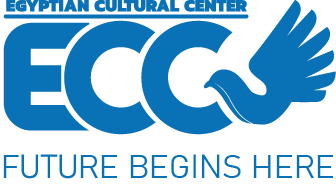A DBA degree (Doctorate in Business Administration) is a doctoral course intended for professionals who wish to prepare a management thesis based on their professional experience. This definition involves several comments:
A DBA is an educational program involving teachers with the skills to supervise theses, face-to-face or online teaching seminars and a personalized follow-up of doctoral-managers by thesis directors.
A DBA is a doctoral-level curriculum, i.e. postmaster (post-MBA in particular), which generally lasts 3 years
A DBA degree is a course which must lead to the writing of a thesis. The degree of doctor is awarded at the end of the public defense of this thesis before a jury. It is therefore not a course comparable to the Bachelor or Master degree where the diploma is essentially based on the acquisition of knowledge and exams. In the DBA process, the defended thesis is the centerpiece of the educational system.
A DBA thesis is a written, original work, dealing with rigor and relevance of a management issue, both from the managerial experience of the management practitioner that is the doctoral student-manager and from scientific literature …
What is A DBA degree mean?
There is great confusion about what the professional doctorate is, as the attempts at definition that often start with “In fact, it is not …” show. Saying what it is not perhaps allows us to better understand what it is, but we can be much more precise and describe its characteristics in a positive way.
We believe that this confusion does not have to be, provided that we are ready to accept a priori the fact that there are no insurmountable boundaries between the different types of doctorate, given the differences in traditions of from country to country and from discipline to discipline.
- The traditional doctorate (PhD): a student prepares his doctorate and works alone (if not alone) in writing his thesis, under the supervision of one or two experienced researchers. The objective of this work is to make an original and important contribution to research in the field studied. It is also good that the student has an overall understanding of the field in which he works and his thesis must be of such quality
- The doctorate obtained through publications : it is quite similar, in terms of its objectives and criteria, to the traditional doctorate, but it takes place differently since the candidate must present his university publications. In the social sciences, these publications are often accompanied by an introduction and an analysis.
- The teaching-based doctorate : the student obtains this doctorate after having followed a significant volume of education and is subject to a formal evaluation. The program called New Route PhD led by 10 British universities since the early 2000s can be considered as a subcategory of the traditional doctorate which rests on a large volume of teaching and on the desire to give graduates a vast knowledge of their discipline of study.
- The doctorate based on professional experience or exercise doctorate: this doctorate certifies training in the field of creative or performing arts, in that of design, and sometimes also in other fields where one can “exercise” (for example in the health sector). The artistic doctorate is distinguished by the fact that it focuses on the product created or on its creation process.
- The Professional Doctorate: it is a teaching-based doctorate but the area of study is a professional discipline rather than academic. Various educational tools are generally used as part of the training. If this diploma is focused on research, its interest normally lies more (or also) in the application of the student’s discoveries in his professional practice (it gives rise to a reflection on the practice).
- This classification into five categories distinguishes between doctorates with a rather university orientation (traditional doctorate, doctorate obtained through publications, doctorate based on teaching) and doctorates with a rather professional vocation (doctorate based on professional experience or doctorate professional doctorate) of different doctorates.
main differences and similarities between DPA and PHD
General differences exist between these two types of doctorate, but it should be emphasized that these differences are often more or less noticeable and that practices vary from one discipline to another. The two types of doctorate have the following common characteristics:
- The final objective of the training is the realization of an original work.
- The product (usually a thesis) attests to the expertise of the doctoral student.
- The training and the product are research-oriented.
- The doctoral student is subjected to an oral examination.
DBA degree
A DBA degree deserves more attention in the context of political debates on the reform of doctoral training.
Indeed, at present, the authorities, at national but also supranational level, focus (too much) their efforts on the possibilities of developing the traditional doctorate. While this is laudable in itself, the fact remains that looking in another direction greatly expands the range of possibilities.
Although it is worth looking into, the professional doctorate is by no means a universal solution.
It is not first of all the object of this doctorate, and then, this diploma raises its own problems (which are sometimes not so different from those posed by the traditional doctorate) which should not be stopped analyzing .
However, if the principle according to which the knowledge society needs more flexibility becomes the rule, logically, the objectives, structures and modalities of doctoral training should diversify, and therefore become more flexible.
In this perspective, the professional doctorate undeniably has great potential in the knowledge economy and it deserves that specialists devote more research to it and that the authorities pay it more attention.
By taking DBA degree , you will obtain professional certification from ECC “Egyptian Culture Center”
In this link, you can check the information related to the access requirements, the admission criteria and tests or the documentation you need to request access.
If you wish, you can also contact us to clarify doubts or expand some type of information.






Leave A Comment